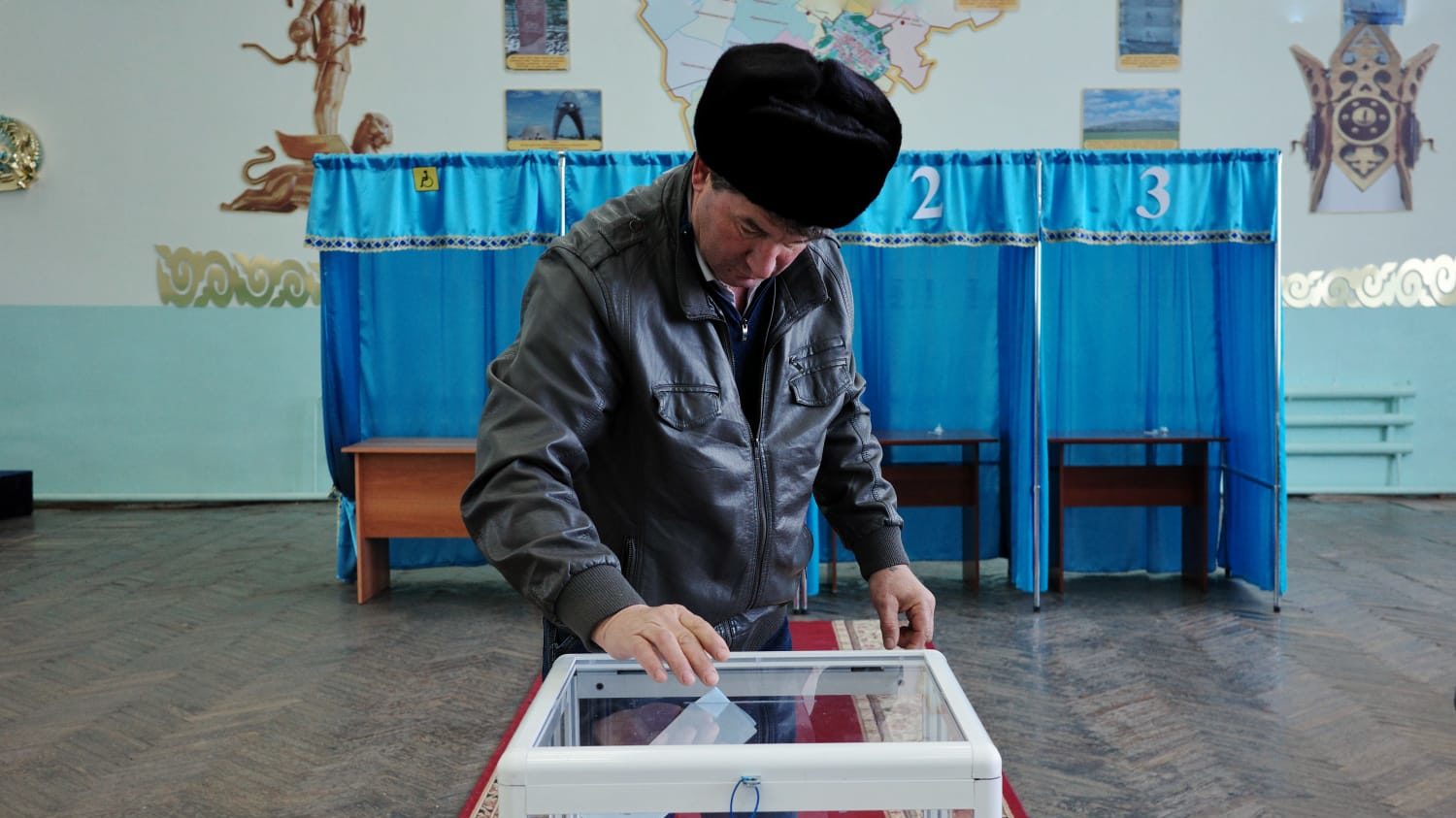Kazakhstan Election Comes at End of Turbulent Year
The former Soviet state is moving away from Russia and China – but not making a complete break – while establishing relationships with other regional players
The polls have closed in Kazakhstan following a snap election called by President Kassym-Jomart Tokayev in the wake of deadly protests in January that began over fuel prices, which rocked the Central Asian country and left more than 230 people dead.
These elections and his expected victory will only bolster Tokayev’s grip on power and solidify his ambitions to remain in power. Tokayev became acting president in March 2019, following the resignation of long-time President Nursultan Nazarbayev, who took office when his country declared its independence in 1991. Presidential elections were held in June of that year and saw Tokayev being officially elected as the second president of Kazakhstan.
Tokayev, a former foreign minister and deputy secretary general of the United Nations, introduced constitutional reforms to curb the powers of the president by limiting the term to seven years, saying he needed a “new mandate of trust from the people.”
Kazakhstan is officially a democratic, secular and constitutional country, despite having had the same president for nearly three decades, who was reelected five times after the country broke off from the Soviet Union.
Russia’s war in Ukraine has stimulated Kazakhstan to take bold steps towards genuine foreign policy independence
Sunday’s election comes at the end of a troubled year for the country. In January, government price caps were lifted on liquefied gas, leading to a steep price increase. Peaceful protests against the higher prices in the oil-producing city of Zhanaozen soon spread throughout the country, becoming violent and then deadly.
Tokayev declared a national state of emergency and brought in troops from neighboring countries as part of the Moscow-led Collective Security Treaty Organization to help quell the riots, and then announced the restoration of some gas price caps for another six months.
Tokayev asserted that his country’s security officers “have never fired and will never fire on peaceful demonstrators.” Still, in a January 7 televised address, Tokayev said that he had provided security forces with orders “to shoot to kill without warning” to put a halt to the protests.
Days later, the president described the unrest as an attempted coup and blamed the violence on militants from Central Asia, Afghanistan and the Middle East. He never provided any proof for these accusations.
A former part of the Soviet Union, Kazakhstan and Russia share the world’s second-longest border. Kazakhstan also has close security and economic partnerships with Moscow. It also has good relations with its other large neighbor, China.
Tokayev criticized Moscow’s invasion of Ukraine in February 2022, but stopped short of joining Western sanctions on Russia.
Five little-known candidates challenged Tokayev in Sunday’s elections, which he appears poised to win. He is then expected to turn his attention to Russia, his country’s biggest trading partner, and to the fallout from January’s unrest, also known as Bloody January.
Inflation in Kazakhstan has risen to its highest levels in 14 years as its economic growth has suffered due to the recession in Russia as a result of its war on Ukraine.
Kazakhstan is the 19th largest oil-producing nation in the world; it also exports wheat, textiles and livestock, and is a leading exporter of uranium.
Dr. Stephen Blank, a senior fellow at the Foreign Policy Research Institute, writes for the UAE think tank TRENDS Research & Advisory that “Russia’s war in Ukraine has stimulated Kazakhstan to take bold steps towards genuine foreign policy independence.” This includes moving away from Russia and China – but not making a complete break – while establishing relationships with other regional players, including Turkey and countries in central Asia.
With the ongoing Russian invasion of Ukraine and as other countries are looking for new global markets, Kazakhstan has cast a wider net for trading partners and countries willing to invest money and technology in the former Soviet country. These countries, according to reports, include Saudi Arabia, Iran and Georgia.
Saudi Arabia, for example, is interested in investing in Kazakhstan’s energy sector, and participating in joint projects while helping to bring it into the fold of major oil exporters. The Saudis are also interested in Kazakh exports including grain and flour, as well as meat, particularly as global grain supplies have run short due to the Russia invasion of Ukraine. The Saudi kingdom also is interested in Kazakhstan’s aerospace industry and other fields.
In July, Tokayev was hosted in Jeddah by Saudi Crown Prince Mohammed bin Salman; the leaders discussed bilateral relations and concluded deals in energy, food, and medicine. They also signed memoranda of understanding in the fields of medicine, sports, tourism, and finance.
In October, Iran and Kazakhstan signed an agreement to increase trade turnover to $3 billion. Today, Kazakhstan supplies grains, oilseeds, vegetable oils, confectionery, and meat products and imports vegetables, fruits, and dairy products from Iran, according to the Astana Times.
Meanwhile, trade between Kazakhstan and the United Arab Emirates amounted to a record $907 million this year, and Emirati investments in Kazakhstan amounted to about $2.7 billion since the establishment of diplomatic relations three decades ago.
Also in October, the Emir of Qatar made a state visit to Kazakhstan and discussed joint investment projects, particularly in the areas of agriculture, energy, petrochemistry, mining, and finance, the Astana Times reported. During the meeting, they signed agreements to bolster cooperation in investments, education, trade, healthcare, agriculture, sports and culture.
In July, the 9th meeting of the Israel-Kazakhstan Joint Commission on Trade and Economic Cooperation was held in the Kazakh capital, to foster the bilateral relationship and trade between the two countries. according to Israel’s Foreign Affairs Ministry. The countries have had diplomatic relations for the last 30 years, and Kazakhstan is the second-largest oil supplier to Israel. The two countries also maintain close contacts in the defense and intelligence sector.


